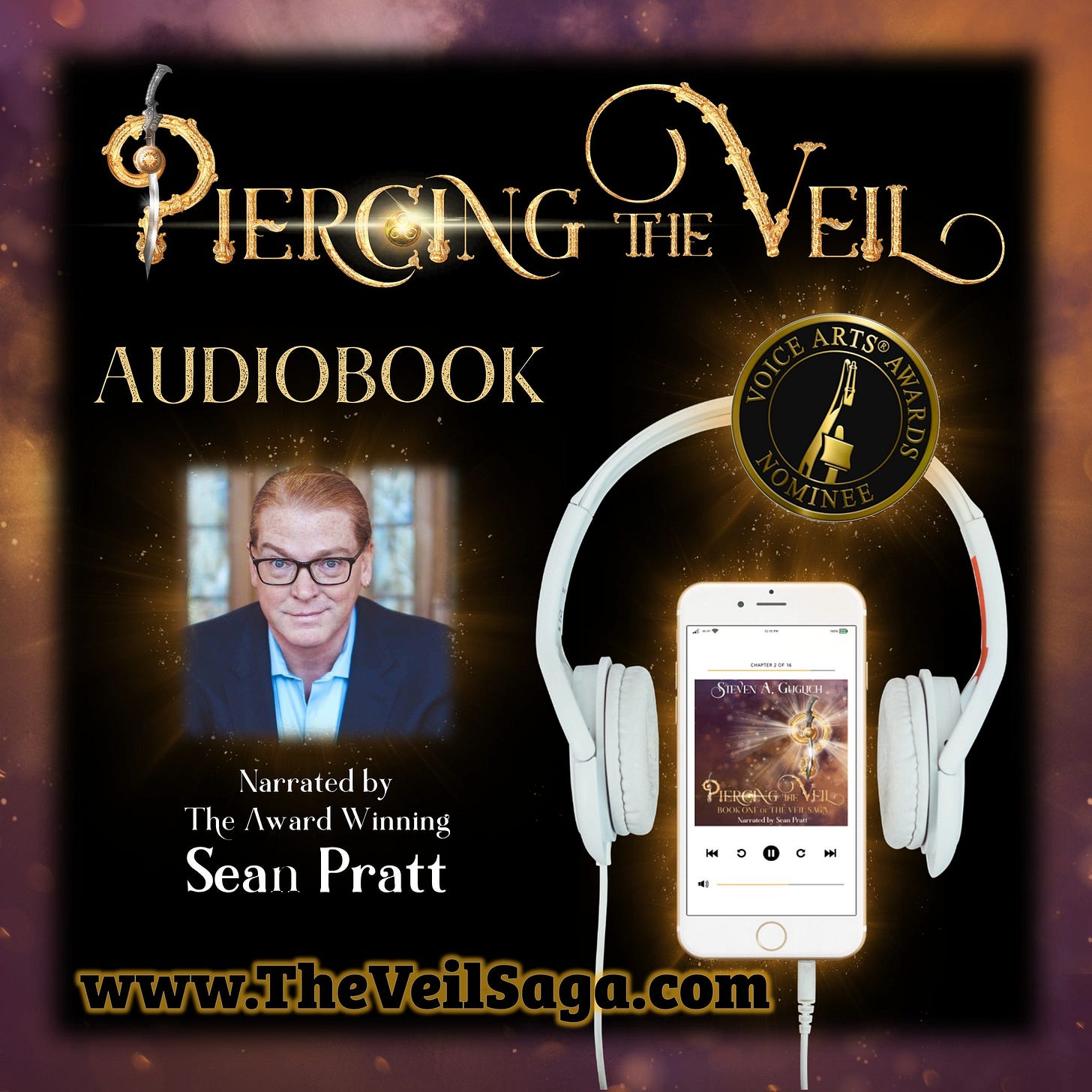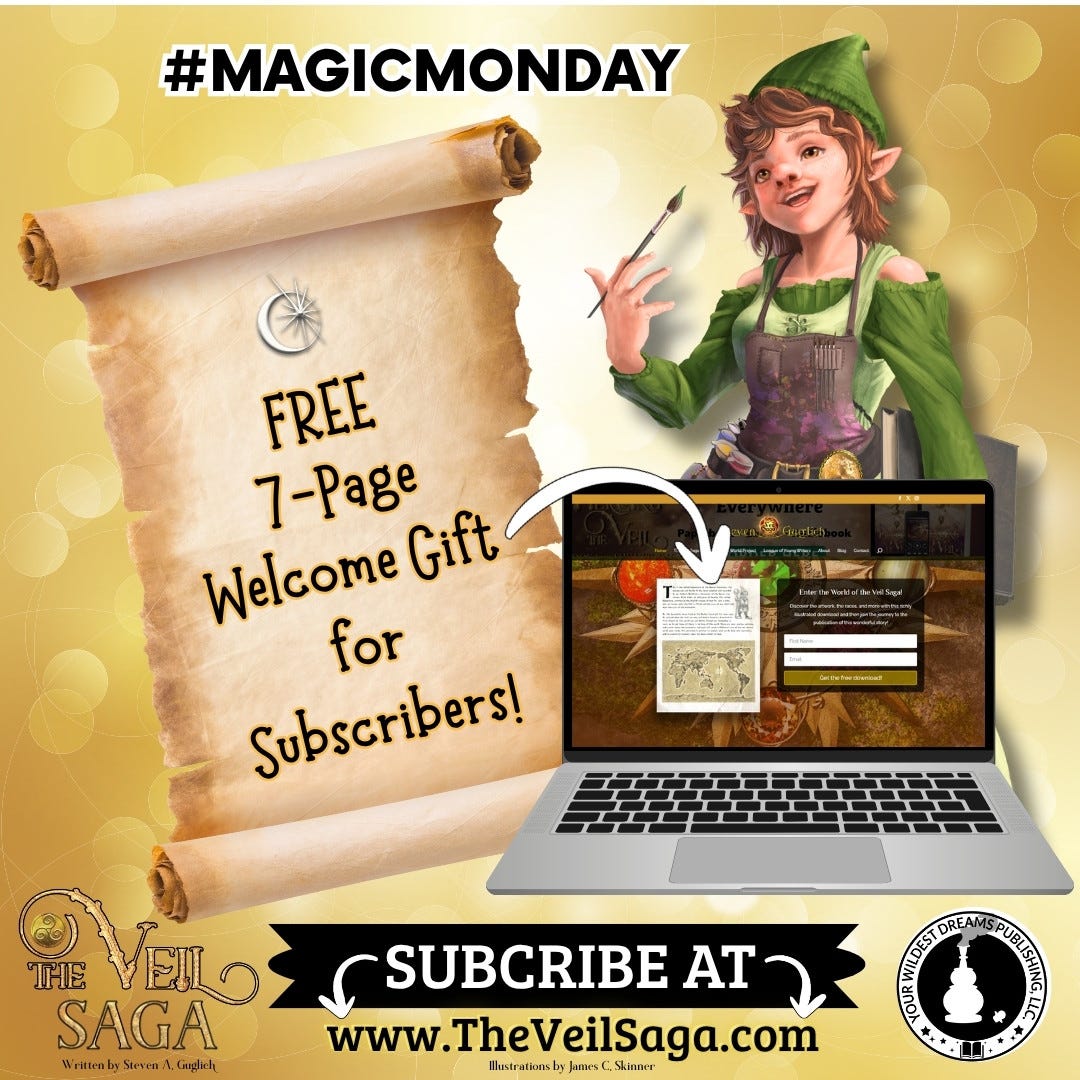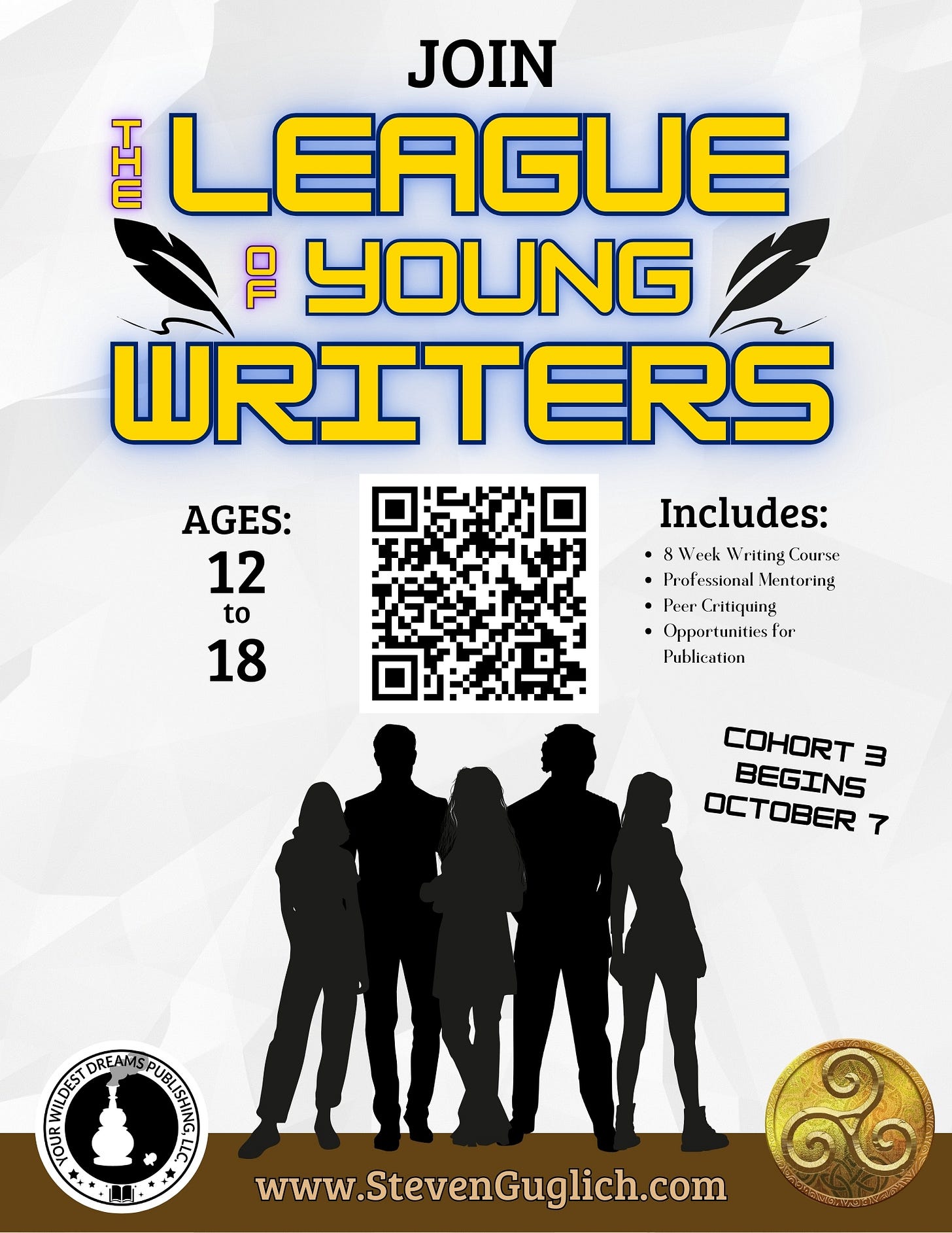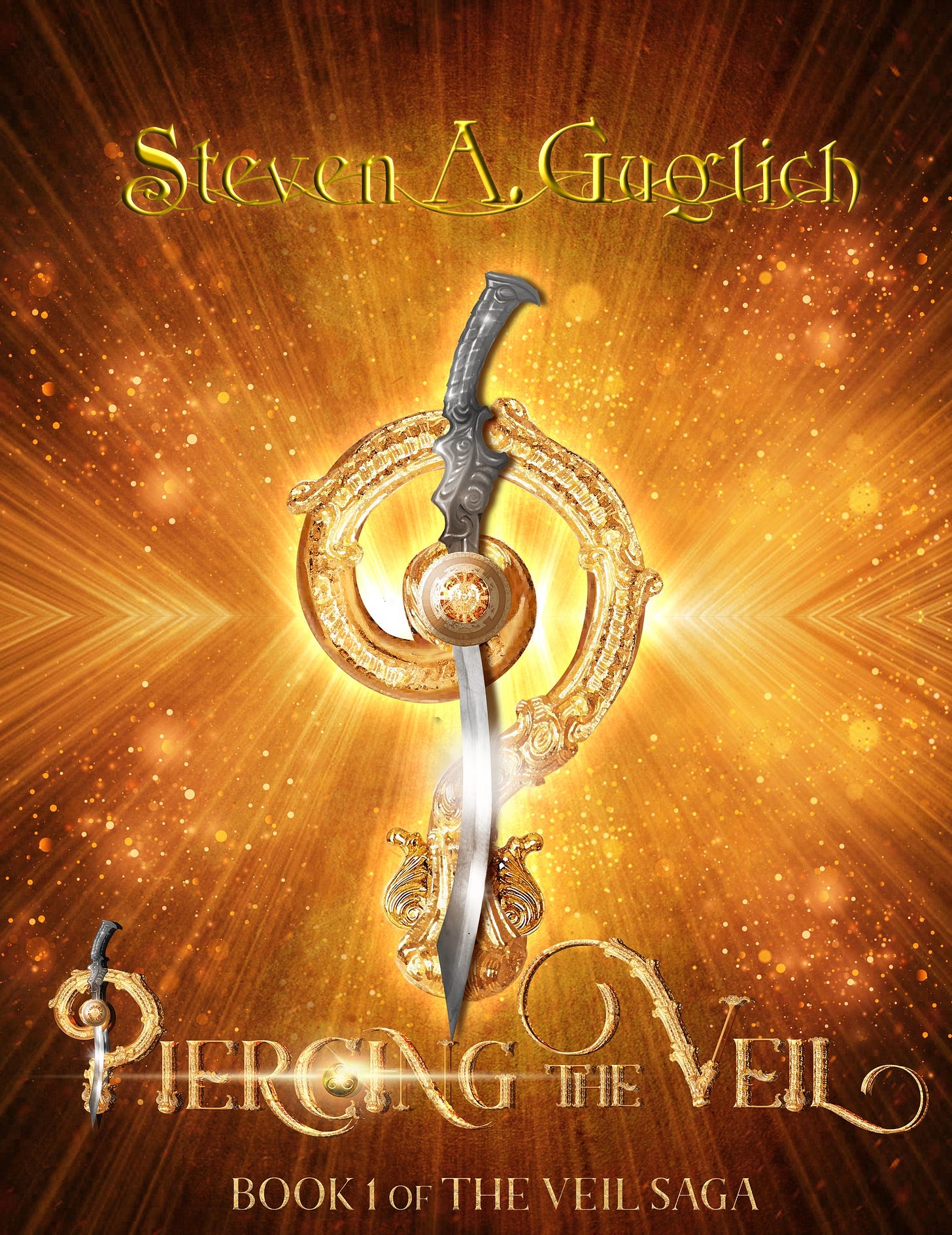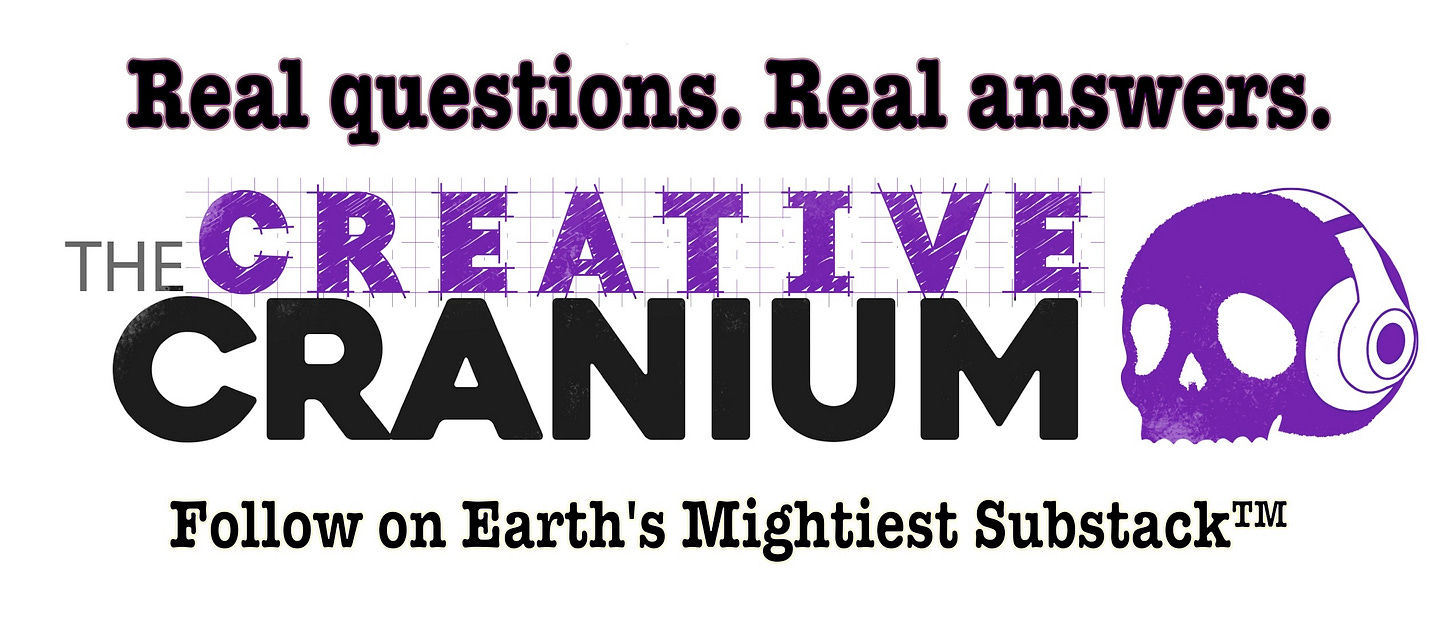Welcome back my creative comrades!
You know, I have always been fascinated by lore and world building. In particular, high fantasy is one of my favorite genres.
So today I am super stoked to interview my friend, fantasy novelist Steve Guglich!
Circles and rings! Dragons and kings! Join us for…
Welcome Steve! Great to see you here. Congratulations on publishing your novel. I always wanted to know, how did you get your start in writing?
Thanks Timothy! In many ways, I’ve always been a writer. There have always been stories floating around in my head. I was the kid who was always “on”... always playing and pretending.
But looking back, there are three individuals who led me down the path to be a published writer. The first was my dad. It was his imagination that sparked and fueled my own. My dad was always creating, whether it was a story he wrote, something he built in his shop, or a dish he cooked in the kitchen. His favorite genres were sci-fi, fantasy, and western. My dad had shelves filled with books. He’d get the yearly Frank Frazetta Fantasy calendar and hang it in his shop.
And when we both discovered Dungeons & Dragons, it only stoked the flames of our imaginations even more. My dad became the Dungeon Master for me and my friends.
But there was one more thing that my dad did that led me to become a published author: he encouraged me. In my dad’s eyes, there was no limit to the things I could accomplish. There were no talks about “being realistic” and “not shooting for the stars.” He believed that I could be anything I set my mind to. I became the first person in our family to earn a Bachelor’s Degree and a Master’s Degree.
The next person who led me down the path to publication was my high school English and journalism teacher, JoAnn Hauptman. She saw something in me that I never saw in myself. She saw that I was a writer. Mrs. Hauptman mentored me and honed my writing skills, taking me from a production assistant and reporter my freshman year and promoting me to Editor in Chief of our school newspaper from 10th grade through my senior year.
Mrs. Hauptman also sparked my interest in reading. Sure, my dad had tons of books at home that he’d read, but those thick tomes intimidated me, so I stuck to comic books. That was until Mrs. Hauptman’s freshman English class. We had to write a book report on any book that we wanted to, as long as it was over 200 pages. I was sweating this assignment. I had no idea what to choose, so I did what any person does when picking out a book… I looked at the cover. I found one that intrigued me: an unusual lion-like creature with wings and a scorpion-like tail sitting in the hall of a palace, looking angrily down at a young boy. The book was Piers Anthony’s, A Spell for Chameleon, the first Xanth novel. I read the story, unable to put it down, and was eager to write the book report. In high school, I discovered that I am a writer and a reader.
The final inspiration came many years later, on May 17, 2008… my wedding night. My wife, Karen, handed me a gift wrapped in red paper and a red bow. I opened it, and it was a book. Not just any ordinary book, but the first book I unknowingly wrote. During our courtship, I’d send Karen an email every morning—a Daily W.O.E. These Words of Encouragement I wrote were filled with passages from the Bible with my two cents thrown in. She had them all compiled, formatted, and turned into a book. When she handed this book to me, she said, “Steve, you’re a writer. You need to write.” And those words were the final push I needed to start a daily ritual of writing the story that had been on my heart for so long.
This is a great story! Your wife sounds like a fantastic partner. What are the steps of your creative process?
Steps? There are no steps. I have so much going on in my brain that if I don’t start writing, the ideas find a way to come out. I’m a discovery writer. I sit and write. Sometimes I write parts of a story, and other times I write world-building elements if I want to expand on an idea. While the initial drafting process is pure discovery, the real structure comes into play during revision. That's when I focus on the core craft elements like plotting, character arcs, and narrative structure to shape the raw material into a polished story.
Interesting perspective. Your universe is quite detailed. Who are your inspirations?
Aside from my children and those I mentioned who guided me down the path to being a published writer, I’m also inspired by anyone who creates. People who take the ideas in their head and make them come to life, whether it be other writers, illustrators, sculptors, cooks, woodturners… they all inspire me. True confession: I have a fascination with watching wood turning videos on YouTube. There is something mesmerizing about watching someone take a misshapen piece of wood and turn it into something beautiful.
I am the same way about sculptors. What were some of the early obstacles that you faced, and how did you overcome them?
Time. Time was the biggest obstacle I faced. At first, it was me squandering time by watching TV or playing video games instead of writing. Then it was obligations. Even after my wife encouraged me to be a writer, finding time to do so after a long day of teaching was difficult. Adding four kids to the mix made time to write even more elusive. I found myself getting irritable because I couldn’t write. The story I had started needed to be finished, and I just didn’t have time. After work, I’d come home and play with the kids, tuck them in, and then stare at a screen for an hour and try not to fall asleep as I pushed out a paragraph of the story. It just wasn't working.
So my wife and I prayed. We asked God to help me find the time to write. The next night I found myself awake at 3:30 a.m. Unable to fall asleep again, I tossed and turned and waited for my alarm to go off at 6:00 a.m. To my dismay, this happened for the next two nights. Finally, I decided if I can’t sleep, I might as well just get up. I got up, made myself some coffee, did my morning devotional, and then started to write. It was an incredible experience. I was churning out words that became some of my best writing. This became a ritual, and I now write every morning from 4:00 a.m. to 6:00 a.m.
Some people say that fantasy is less popular these days. Why did you choose this genre?
I grew up surrounded by fantasy and sci-fi. Seeing Star Wars for the first time on the big screen in 1977 as a six-year-old boy with my dad is still a moment of utter wonder that I’ll never forget. That wonder was a constant in my childhood. My dad would tell me these fantastic stories. One was so elaborate that I believed in Santa Claus until I was in 6th grade! That early immersion in the fantastic made it inevitable that I would one day want to build my own worlds.
We have some similarities. What is one thing we do not know about you?
Most people know I'm a writer and a school principal, but few know that I also briefly dabbled in culinary arts school. I love to cook. It was another creative path I explored before ultimately dedicating myself to education and writing.
Hey I love to cook as well! We should do a cooking podcast sometime! What is your preferred method of promotion/social media, and why?
Preferred? I would prefer to pay someone to do it for me. Unfortunately, I don’t have the luxury to do that. So, for now, I depend on word-of-mouth and social media posts. That’s the most difficult part about being an Independent Publisher. We have to do our own marketing and promotion, which costs money and takes time away from writing.
What are your thoughts on the current state of the creative writing scene?
It’s wide open right now. The only thing preventing creatives from seeing their story published is themselves. With the advent of Amazon, IngramSpark, Draft2Digital, and the plethora of other platforms available, it costs very little to publish a book. That in itself can be a problem, because there is often no quality control. Someone can write a book and upload it to Amazon without ever having it edited, proofread, or critiqued. This can give independent authors and publishers a bad reputation.
This’s why one of my goals with publishing The Veil Saga was to create a series that would rival those from any of the traditional publishers. I wanted people to pick up Piercing the Veil and see the quality, from the professional artwork on the cover to the interior layout. And when they read the book, I wanted them to become immersed in the story and not be taken out of it by poor writing, grammatical errors, spelling errors, and shoddy formatting that can sadly be found in so many independently published books. I spent a lot of money to keep the quality control high. I hired a well-known editor, a cover designer, and an illustrator. I hired renowned editor Patrick LoBrutto, who has won a World Fantasy Award and has edited legends like Isaac Asimov and Stephen King.
I went through five drafts of editing, including a beta reader phase that had eleven readers giving feedback. Before that, I had alpha readers, my wife and my critique partner. And boy, did this process put the polish and shine on Piercing the Veil. Additionally, I hired multiple-award-winning voice actor, Sean Pratt, to narrate the audiobook. Sure, I could have narrated it myself and saved some money, but it would not have been anywhere near as good as the masterpiece that Sean made.
Great idea. How do you "measure success"?
There are lots of ways to do this. But, honestly, the best indicator for me was that I finally finished a story that I had started. Over the years, I had multiple unfinished stories. Piercing the Veil was the first I had ever finished. At 52 years old, I finally finished a story. To me, that is a success. I now have a legacy to leave my children, my grandchildren, and their children.
And a great legacy it is. How do you choose your projects?
Honestly, they choose me. My mind is always working on something. Piercing the Veil is the first book in a planned trilogy, so in this case, the next two projects have already chosen me. I feel a responsibility to see the story of Jeremy and Masaru through to the end.
What advice would you offer to the new and occasionally struggling creators on the scene?
It’s easy to give up. It's easy to listen to the dark voices in your head that tell you that you’re wasting your time, your work isn't good enough, that you’re not really a writer, you’re just pretending to be. The hard part is telling those voices to stop every time they speak. The hard part is pushing forward to fulfill that dream and write the story that’s been on your heart. My advice would be to stop listening the negativity all around and just get that first draft done. And remember, that first draft is only for you. The real story will come together as you get feedback and write the additional drafts.
This is one of the reasons I started The League of Young Writers. I want to help teens see their story go from pen to publication and help them fight through all the negativity. I’ve had two cohorts of teens so far, and cohort three will be starting in October.
Thanks for the information, and thanks for sharing your time and knowledge with our readers.
Steve, I think you have done a terrific job with your book. I am reading your story now, and I love the memorable characters and deep lore. I am recommending this book to my followers- PIERCING THE VEIL!
That’s a wrap, Substackers! Stay tuned for more creator interviews!
Timothy B. Fling
Writer and Creator
“Ars Longa, Vita Brevis


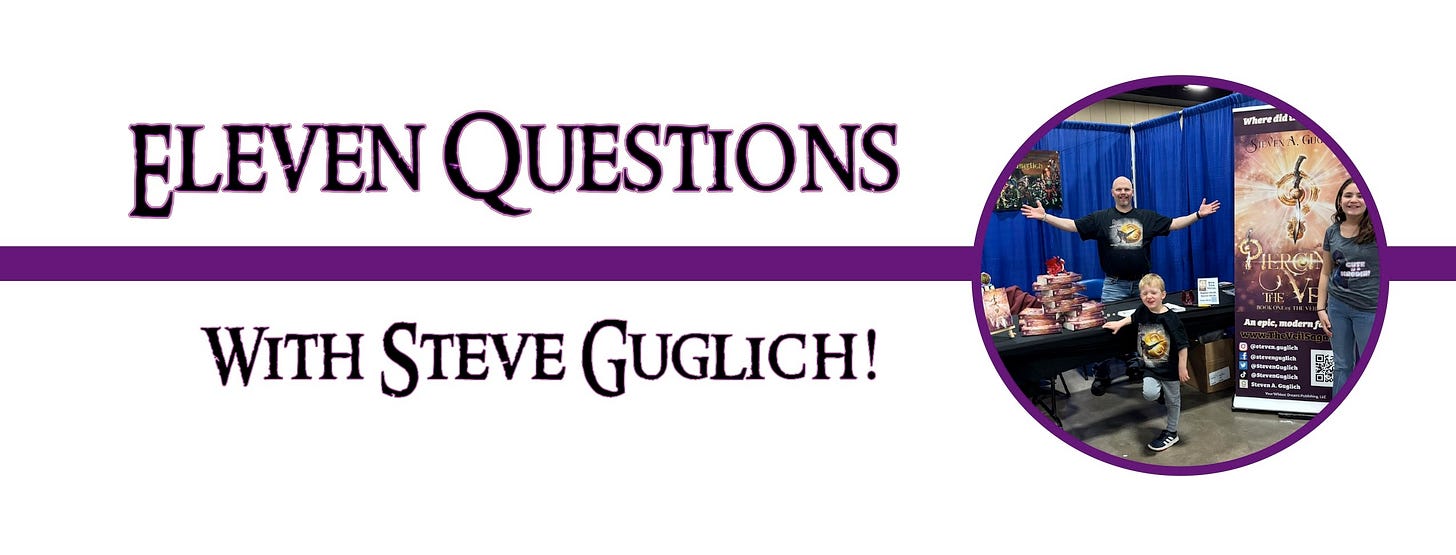
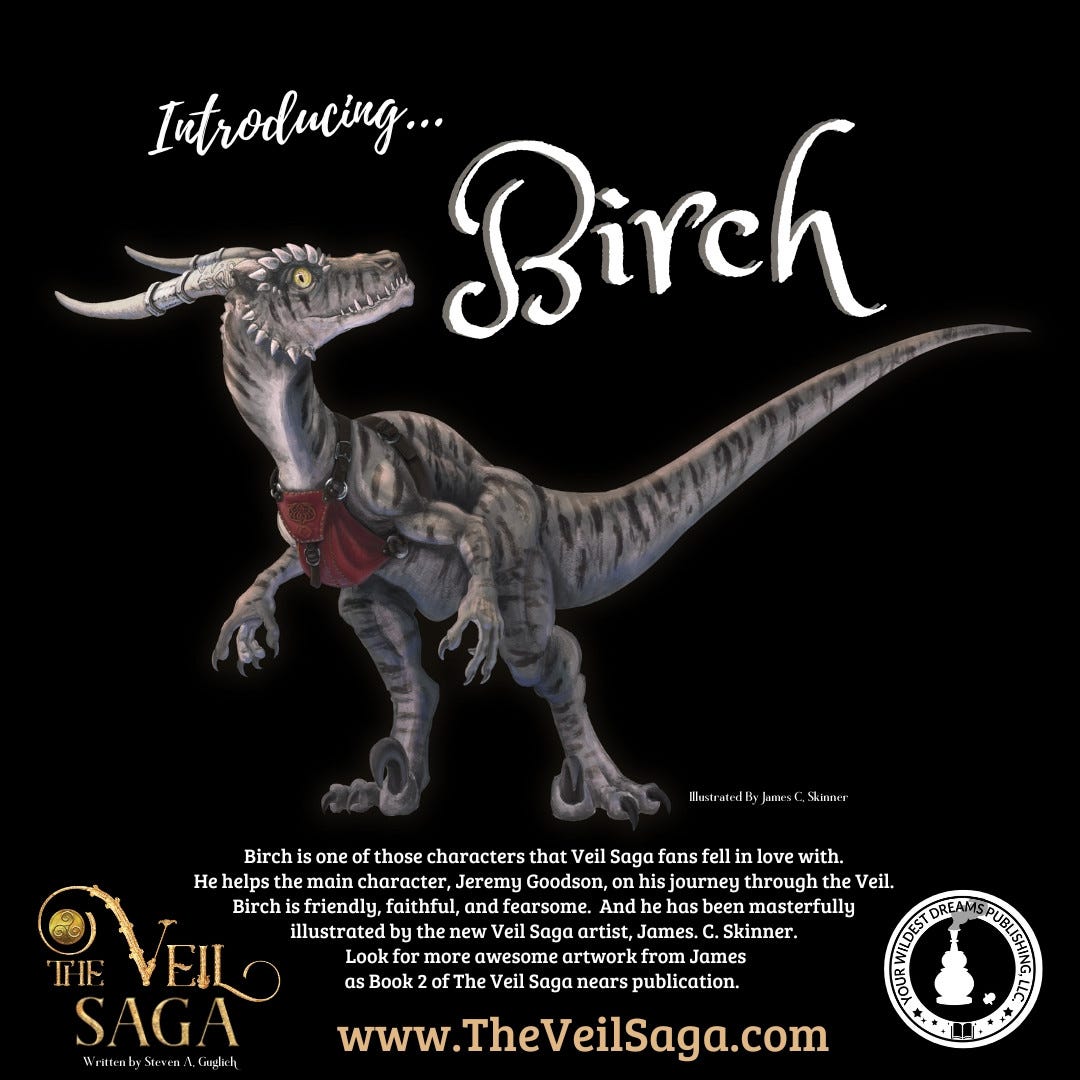
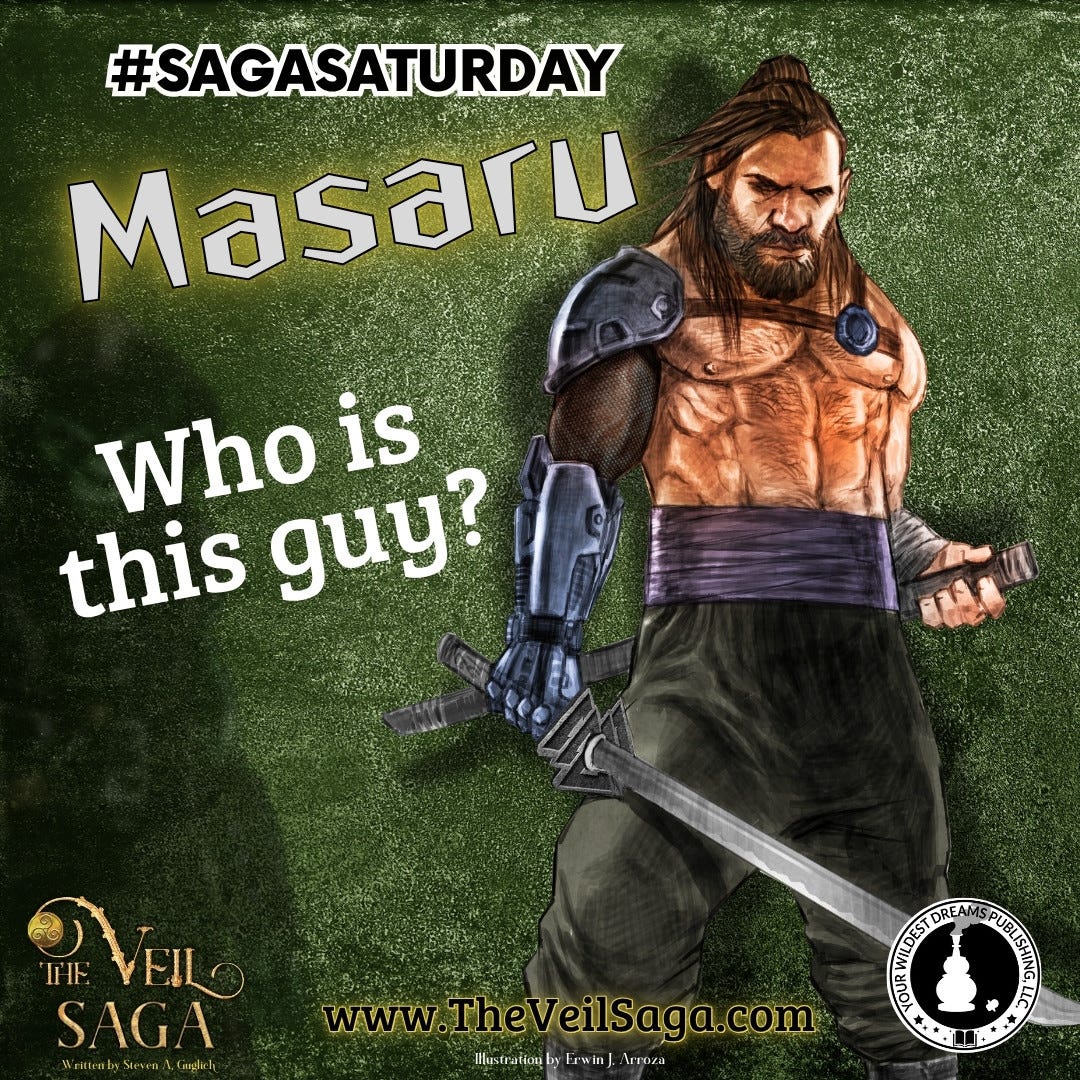
![May be an image of text that says "#SAGASATURDAY Who are the Koth? EUA TE DEVEILO SAGA STOREAW 15 www. www.TheVeilSaga.com Thev MlustratiansbyErwin]. 5 5" May be an image of text that says "#SAGASATURDAY Who are the Koth? EUA TE DEVEILO SAGA STOREAW 15 www. www.TheVeilSaga.com Thev MlustratiansbyErwin]. 5 5"](https://substackcdn.com/image/fetch/$s_!4NoJ!,w_1456,c_limit,f_auto,q_auto:good,fl_progressive:steep/https%3A%2F%2Fsubstack-post-media.s3.amazonaws.com%2Fpublic%2Fimages%2Fa448075a-d191-4265-8ffb-d71296bd6e78_1080x1080.jpeg)
